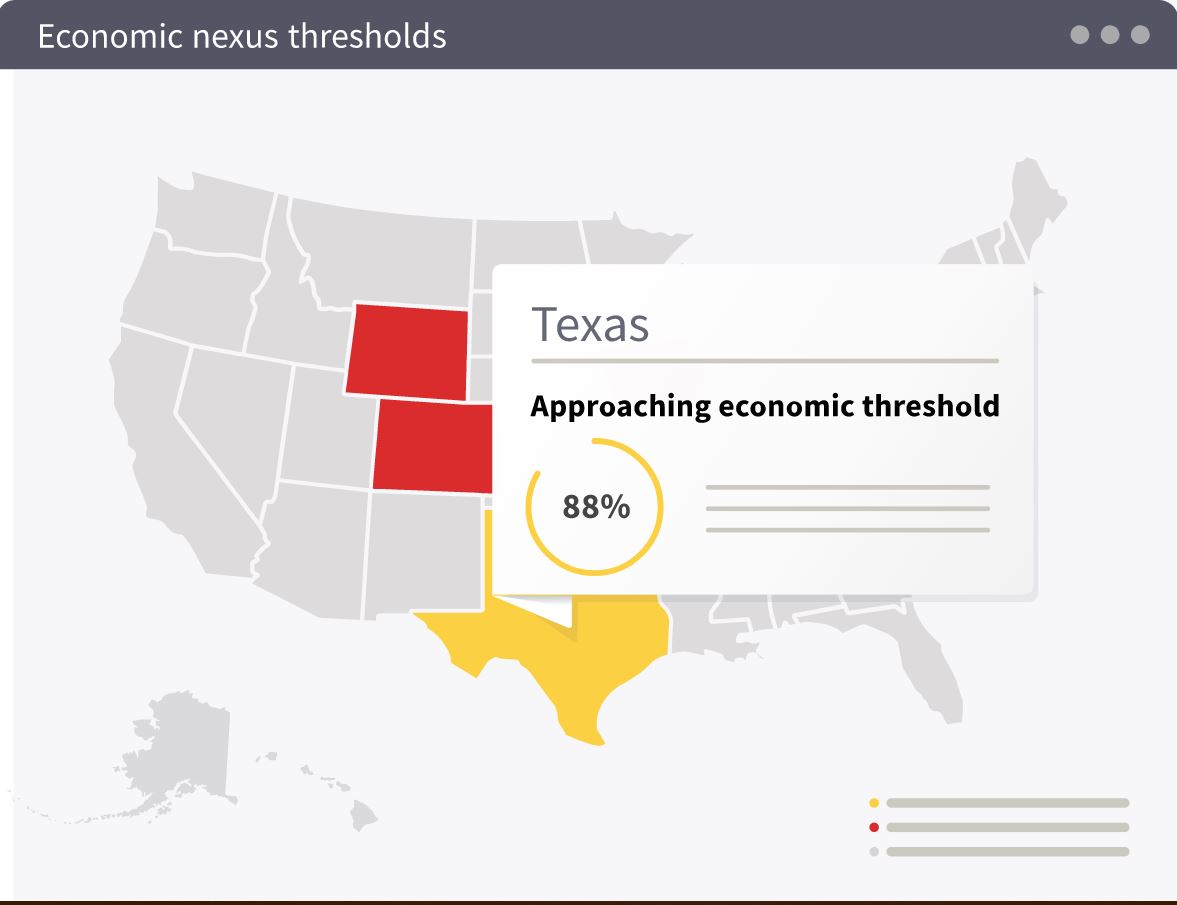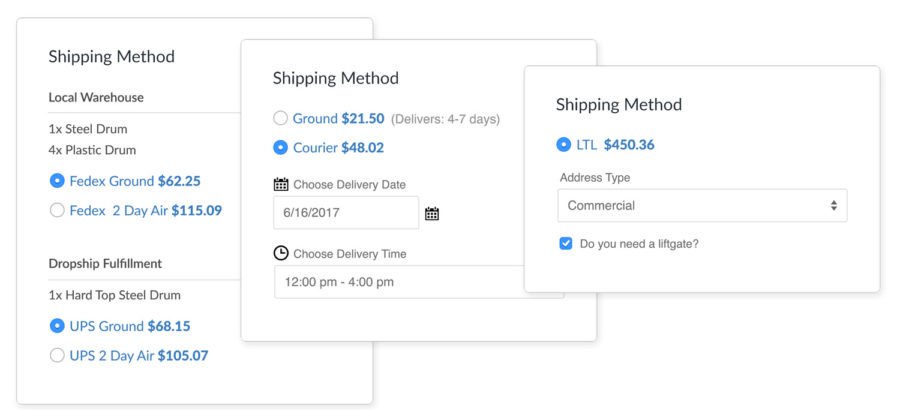When selling online, generally an Ecommerce store itself is just one piece of the puzzle. Managing an online business means dealing with a lot of complex moving parts, but fortunately Zoey’s app ecosystem can help with a number of them.
First, let’s look at how apps can help support and Ecommerce business. Then we’ll take a look at some Ecommerce management apps that can help take some of the pressure off, while handling aspects of the business that would otherwise require your time and attention. All of the tools here are heavily adopted by the Ecommerce community, and work with many key Ecommerce platforms, like Zoey.
How Ecommerce Apps Simplify Management
Apps can serve a few purposes. Some will fill gaps in a solution’s feature set; others will extend them. Another set will help bridge the gap between other important business systems, from tax calculation/management to CRMs/ERPs to accounting. So let’s go over the types of apps you may encounter and how they can prove important.
Apps That Cover The Basics
The single most important differentiator between Ecommerce platforms when it comes to apps is whether these offerings fulfill basic functions or provide more advanced opportunities.
For example, consider the issue of shipping labels. For any retailer selling goods online, shipping levels are an obvious necessity. Yet a lot of Ecommerce solutions don’t have the ability to create shipping labels built into their basic platform. Instead, users need to download an additional app to gain this ability, and that app is not likely to be free. It may not break the bank, but it’s yet another cost that an online retailer can’t avoid and may not have foreseen when choosing that platform.
However, one can evaluate solutions that provide that functionality and more, to ensure the investment makes sense. For instance, using the same example, we’ll talk about ShipStation in our app recommendations – it not only can print labels, but help with bulk order fulfillment, a combination that makes sense and can help volume sellers keep up.
Apps That Extend a Solution
For more robust, sophisticated Ecommerce platforms, apps will instead provide advanced functionality – features that aren’t necessary for basic Ecommerce, but can deliver a powerful advantage.
Here are just a few examples of the more advanced capabilities that apps can potentially offer:
- Auto-generate coupon codes to make promotions easier to implement.
- Connect your online store to social media platforms to better promote your offerings.
- Integrate with mailing list software for better, smoother marketing campaigns.
- Set-up and automate your shipping.
- Mass update products to make changes throughout your online store quickly.
Generally speaking, those Ecommerce platforms which require app installation for more basic functions will simply not offer more sophisticated apps, such as these.
Apps That Manage Integration
Beyond the issue of basic vs. advanced app availability, online retailers should also consider the question of integration. Put simply, there are two options here: apps that are pre-integrated and those that are not.
Pre-Integrated Apps
The advantage of an Ecommerce platform with pre-integrated apps is straightforward: There’s no real chance of technical complications or other issues when you go to install a new app. Essentially, all of the apps are right there, waiting for you to hit the on switch. The process is smooth and simple, and will not cost you a fortune in development fees.
Non-Integrated Apps
The same is not true for Ecommerce solutions that rely on non-integrated apps. When this is the case, the online store will need to download and integrate each app onto the platform on a case-by-case basis. When this is the situation, companies are forced to rely on plug ins, and that will almost inevitably lead to software bugs and conflicts.
While some apps may be easier to install than others, most platforms require developers in order to integrate apps.
Things to consider:
- What types of apps do I need in my store?
- How much am I willing to invest in using apps?
As a SaaS platform, Zoey’s apps are pre-integrated, and have been tested to ensure they work. All Zoey stores have the same underlying code running them, so if an app works for one store it will work for another.
Apps That Will Move Your Business Forward
Now that we’ve discussed how apps can work, here are some apps that can help Zoey merchants, as well as those on other platforms, get ahead.
QuickBooks Online – Zoey’s QuickBooks Online Connector
QuickBooks Online is one of the most predominantly used accounting software options out there today. It’s important that your Ecommerce solution communicates well with it, and the key features in that solution are properly taken care of by an Ecommerce management app.
That’s why Zoey built its own connector for QuickBooks online. It can properly communicate around products, orders and invoices in the various ways that Zoey uses them. For instance, our connector works with Zoey’s Net Terms feature, ensuring that the terms established with each customer is properly respected.
Our implementation largely uses Zoey has the single source of truth, and flowing information to QuickBooks for proper accounting. Payments and invoices, however, are two-way, so you can decide the best way to collect payments for situations where you need to invoice. You can therefore choose from invoicing within QuickBooks, or using Zoey’s internal billing system.
Learn more:
Sales Tax Calculation – Avalara

Sales tax calculations are increasingly complicated, particularly in the U.S. where each state can have their own rules and requirements. This has been further complicated by the Wayfair vs. South Dakota Supreme Court ruling, which now allows for economic nexus to be established in most states.
Knowing where and how much to collect is a moving target, which is why Avalara is a helpful Ecommerce management tool in your arsenal. Along with knowing what to collect, they help build reports to simplify filing, can take advantage of free filing opportunities, and can even manage exemption certificate documentation on your behalf.
Learn More:
Bulk Shipments – ShipStation
When your fulfillment team or warehouse is dealing with an influx of orders, having a tool that facilitates the management of order fulfillment on your side helps greatly. With ShipStation, you can print labels in bulk, get a pick list that lets you assemble the orders more easily, and attach shipping information that’s fed back into Zoey.
As an added bonus, Shipstation can help reduce shipping rates via USPS, which can many times more than offset the cost of their services!
Learn More:
Complex Shipping Scenarios – ShipperHQ

There’s a lot of things to consider when it comes to order fulfillment. Is it being shipped to a customer via FedEx or UPS, or is there a local delivery or order pick-up scenario? Is it being shipped through a standard carrier or through LTL or Freight? Is dimensional shipping critical to controlling shipping costs? Do you need to waive shipping costs on some items while having a surcharge on others?
ShipperHQ’s deep integration into Zoey allows us to support the most comprehensive feature set of any SaaS platform, and that means more flexibility for you as a merchant to configure things exactly as you need them. Having shipping configured properly means avoiding accidental expenses that can erode your profitability, and ensuring you don’t have to overcharge your customers due to inefficiencies in your shipping pricing model.
Learn More:
There Are Plenty More Where That Came From
Zoey has a full app library of Ecommerce management apps available for review and use with Zoey. You can visit our app store to see all the different ways other tools can interact with Zoey. And for a curated list of our favorite recommendations, check out our integrations page.
If you’re not familiar with Zoey, click the button below to request a walkthrough of our solution:






